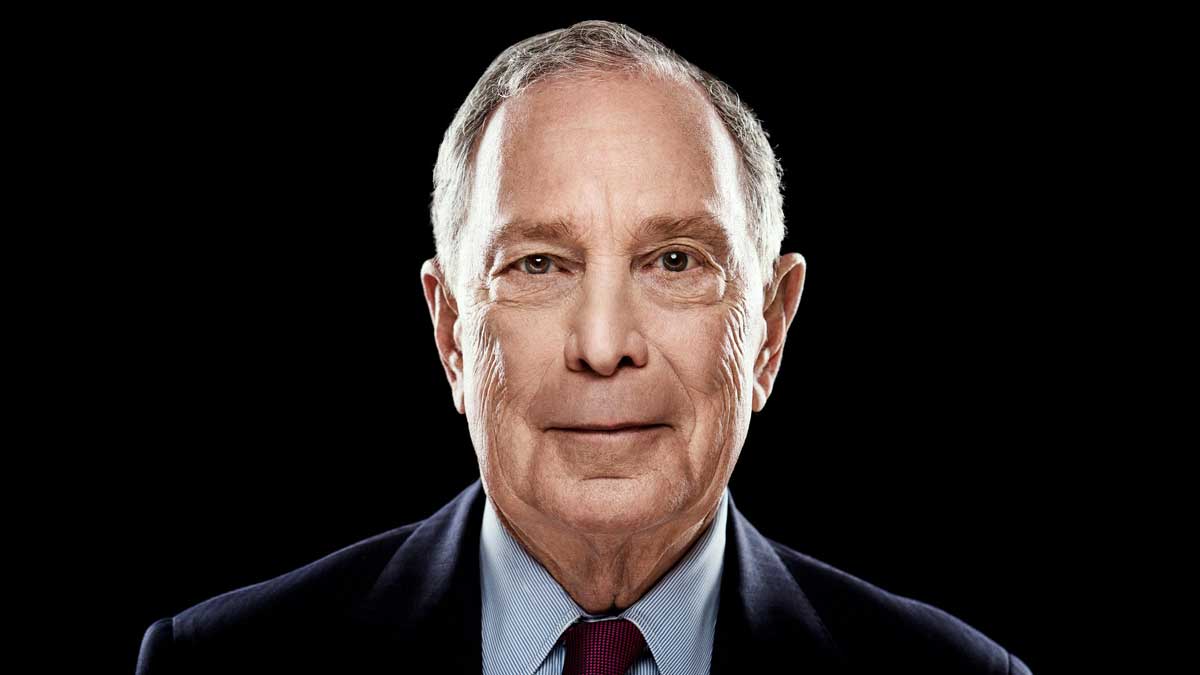- Home
- Billionaires
- Investing Newsletters
- 193CC 1000
- Article Layout 2
- Article Layout 3
- Article Layout 4
- Article Layout 5
- Article Layout 6
- Article Layout 7
- Article Layout 8
- Article Layout 9
- Article Layout 10
- Article Layout 11
- Article Layout 12
- Article Layout 13
- Article Layout 14
- Article Sidebar
- Post Format
- pages
- Archive Layouts
- Post Gallery
- Post Video Background
- Post Review
- Sponsored Post
- Leadership
- Business
- Money
- Small Business
- Innovation
- Shop
Recent Posts
Bloomberg Gives $600 Million to Historically Black Medical Schools

Billionaire Michael Bloomberg is giving $600 million to four historically Black medical schools, according to Bloomberg Philanthropies. This substantial donation, the largest ever to historically Black colleges or universities (HBCUs), aims to support medical education and address racial disparities in healthcare.
Bloomberg’s philanthropy organization announced that the funds will be distributed as follows: $175 million each to Meharry Medical College, Morehouse School of Medicine, and Howard University College of Medicine, and $75 million to Charles R. Drew University of Medicine and Science. The donations are expected to more than double the endowments of three out of these four medical schools, although the specific schools were not identified.
This isn’t the first time Bloomberg has supported these institutions. In 2020, he donated $100 million to the same four medical schools to help reduce student debt. Additionally, Xavier Ochsner College of Medicine, a new medical school under development in New Orleans, will receive a $5 million grant from Bloomberg Philanthropies.
The donations are among the largest ever given to HBCUs. Earlier this year, the largest donation was a $100 million gift to Spelman College from billionaires Ronda Stryker and William Johnston, as reported by the Associated Press.
The significance of Bloomberg’s donation is underscored by the current representation of Black doctors in the U.S. Only about 5% of doctors in the country are Black, according to the Association of American Medical Colleges. HBCUs play a crucial role in addressing this disparity; in 2022, approximately 10% of medical degrees awarded to Black graduates were from HBCUs, based on data from the Department of Education.
Bloomberg’s philanthropic efforts are part of a broader initiative launched during his 2020 presidential campaign aimed at addressing the racial wealth gap. Named the Greenwood Initiative, about the 1921 race massacre in Tulsa, Oklahoma, the project has pledged $896 million to various causes, including the latest donations to the medical schools. Through this initiative, Bloomberg seeks to reduce economic and educational disparities among Black Americans.
Bloomberg’s philanthropic contributions extend beyond HBCUs. He has donated over $4.5 billion to Johns Hopkins University, his alma mater. His significant contributions to Johns Hopkins include a $1 billion donation in July, intended to make medical school tuition-free for most students and to increase financial aid for nursing, public health, and other non-medical graduate students. Bloomberg’s donations have facilitated a considerable increase in the number of students from families with the greatest financial need attending the university.
Bloomberg’s philanthropy is notable not just for its size, but also for its strategic impact. By targeting educational institutions and initiatives that address economic disparities, Bloomberg’s donations aim to create long-term systemic change. His $600 million gift to historically Black medical schools is expected to enhance the schools’ capacity to educate future generations of Black doctors, thus contributing to a more diverse and equitable healthcare workforce.
As of Tuesday, Bloomberg’s net worth is estimated at $104.7 billion, making him the 13th-richest person in the world. His wealth stems from his successful career on Wall Street, which began in the 1960s, and his co-founding of the finance and media company Bloomberg LP in 1981. Over his career, Bloomberg served as mayor of New York City for over a decade and has established himself as one of the most philanthropic billionaires in the U.S., with over $17 billion in donations.
Bloomberg’s recent donations reflect his ongoing commitment to philanthropy and social justice. By supporting historically Black medical schools, he is investing in the future of Black medical professionals and working towards a more inclusive and equitable healthcare system. His contributions are expected to have a lasting impact, helping to close the gap in healthcare disparities and providing opportunities for Black students to pursue careers in medicine.
In summary, Michael Bloomberg’s $600 million donation to four historically Black medical schools represents a historic investment in Black medical education. This substantial financial support will significantly enhance the schools’ endowments, reduce student debt, and foster the growth of a more diverse and inclusive medical workforce. Through his philanthropy, Bloomberg continues to address systemic inequalities and promote social justice, reinforcing his legacy as one of the most impactful philanthropists in the U.S.
Recent Posts
Categories
- 193cc Digital Assets2
- 5G1
- Aerospace & Defense46
- AI37
- Arts3
- Banking & Insurance11
- Big Data3
- Billionaires449
- Boats & Planes1
- Business328
- Careers13
- Cars & Bikes76
- CEO Network1
- CFO Network17
- CHRO Network1
- CIO Network1
- Cloud10
- CMO Network18
- Commercial Real Estate7
- Consultant1
- Consumer Tech180
- CxO1
- Cybersecurity68
- Dining1
- Diversity, Equity & Inclusion4
- Education7
- Energy8
- Enterprise Tech29
- Events11
- Fintech1
- Food & Drink2
- Franchises1
- Freelance1
- Future Of Work2
- Games141
- GIG1
- Healthcare78
- Hollywood & Entertainment186
- Houses1
- Innovation42
- Investing2
- Investing Newsletters4
- Leadership65
- Lifestyle11
- Manufacturing1
- Markets20
- Media193
- Mobile phone1
- Money13
- Personal Finance2
- Policy567
- Real Estate1
- Research6
- Retail1
- Retirement1
- Small Business1
- SportsMoney33
- Style & Beauty1
- Success Income1
- Taxes2
- Travel10
- Uncategorized8
- Vices1
- Watches & Jewelry2
- world's billionaires418
Related Articles
Trump Moves $4B Stake in Truth Social Parent, Stock Drops 6%
Donald Trump recently transferred his 57% stake in Trump Media & Technology...
By 193cc Agency CouncilDecember 20, 2024House Rejects Trump-Backed Funding Bill, Shutdown Looms
The U.S. House of Representatives rejected a new government funding bill on...
By 193cc Agency CouncilDecember 20, 2024Trump Named Time’s Person of the Year for Second Time
On Thursday, Time magazine honored Donald Trump as its “Person of the...
By 193cc Agency CouncilDecember 12, 2024Meta Donates $1 Million to Trump’s Inaugural Fund
Meta, the parent company of Facebook and Instagram, has confirmed a $1...
By 193cc Agency CouncilDecember 12, 2024















Leave a comment